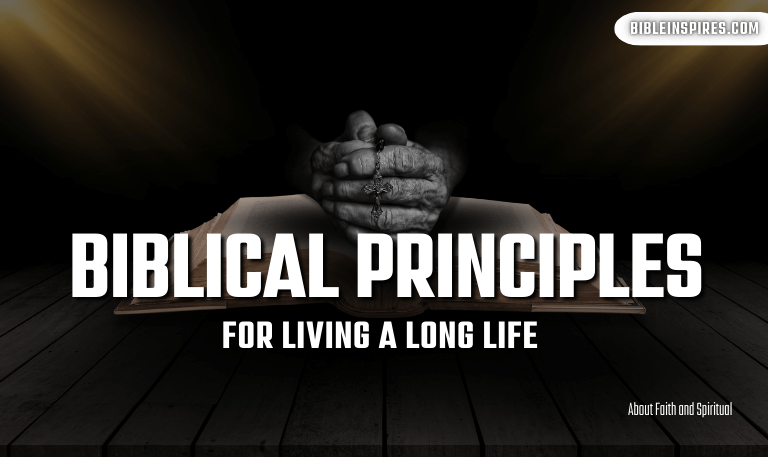Love is arguably the most powerful and essential theme in the Bible, central to both the Old and New Testaments. It is not only a key element of Christian theology but also a guiding principle for how believers should live and relate to one another and to God. In this article, we will explore the profound importance of love in the Bible, diving deep into the Scriptures to understand its various dimensions, from God’s love for humanity to the teachings of Jesus Christ. Through this comprehensive examination, we will uncover how love shapes Christian life, faith, and salvation.
The Centrality of Love in the Bible
Love is woven throughout the fabric of the Bible, appearing more than 500 times in various forms. Whether it’s the love of God for His creation, the love between Jesus Christ and His followers, or the love Christians are called to show one another, the Bible consistently emphasizes the importance of love. But why is love so central to the Christian faith? Understanding the significance of love in the Bible is essential for anyone seeking a deeper connection with God and with others.
Read Also: Bible Verses for Bad Days
Why is Love Central to Christianity?
The Christian faith is grounded in the concept of love: love for God and love for others. In the words of Jesus, love is the greatest commandment (Matthew 22:37-39). Without love, the very foundation of Christianity crumbles. It’s not just a commandment; it’s the essence of God’s relationship with humanity.
II. The Biblical Foundation of Love
Love is not a concept that emerged in the New Testament alone. It’s deeply rooted in the Old Testament, where God’s love for Israel and humanity is described in rich detail. Understanding the foundation of love in the Bible requires a look at both the Old and New Testaments.
Love in the Old Testament
The Old Testament emphasizes God’s enduring love for His people. One of the clearest demonstrations of this love is found in the covenant between God and Israel. God’s love is portrayed as steadfast, merciful, and unbreakable, even when the people of Israel were disobedient.
God’s Covenant with Israel (Deuteronomy 7:9): “Know therefore that the Lord your God is God; He is the faithful God, keeping His covenant of love to a thousand generations of those who love Him and keep His commandments.”
The Psalms: Numerous Psalms emphasize God’s unfailing love, such as Psalm 136, which repeats the refrain, “His love endures forever.”
In these texts, love is not only an emotion but a binding agreement, one that is marked by loyalty, sacrifice, and faithfulness.
Love in the New Testament
![The Importance of Love in the Bible [2025 Guide] 6 Importance-of-Love-in-the-Bible](https://bibleinspires.com/wp-content/uploads/2025/05/Importance-of-Love-in-the-Bible.png)
The New Testament brings love to its ultimate expression through the life, death, and resurrection of Jesus Christ. Love is not just a divine emotion but also a directive for Christian living. Jesus redefines love, urging His followers to love one another as He has loved them.
John 15:13: “Greater love has no one than this: to lay down one’s life for one’s friends.”
1 John 4:7-8: “Dear friends, let us love one another, for love comes from God. Everyone who loves has been born of God and knows God. Whoever does not love does not know God, because God is love.”
Here, love is not just something that God has—it is what He is. Through Christ’s sacrifice, the Bible illustrates love as selfless, sacrificial, and redemptive.
Read Also: Bible Verses About Creation
III. The Greatest Commandment: Love God and Love Your Neighbor
Matthew 22:37-39: The Two Greatest Commandments
When Jesus was asked about the greatest commandment, He responded with two simple yet profound principles:
Love God with all your heart, soul, and mind.
Love your neighbor as yourself.
This dual commandment encapsulates the heart of Christian ethics and spirituality. It emphasizes the importance of both vertical love (our relationship with God) and horizontal love (our relationship with others).
Why Loving God is the First Commandment
Loving God is the first commandment because it establishes the foundation for all other love. When we love God, we align ourselves with His will, allowing His love to flow through us and overflow into our relationships with others. This love is not limited by our emotions but is an active, ongoing commitment to obey and honor God.
Loving Your Neighbor: The Foundation of Christian Community
![The Importance of Love in the Bible [2025 Guide] 7 what-are-the-4-types-of-biblical-love](https://bibleinspires.com/wp-content/uploads/2025/05/what-are-the-4-types-of-biblical-love.png)
The second commandment, to love your neighbor, is just as important. This love goes beyond mere affection; it involves treating others with respect, kindness, and compassion. Jesus taught that love is not limited to those who love us back but extends even to our enemies.
Luke 6:27-28: “But I tell you who hear me: Love your enemies, do good to those who hate you, bless those who curse you, pray for those who mistreat you.”
IV. God’s Love for Humanity
One of the most significant aspects of love in the Bible is the unwavering and unconditional love that God has for humanity. This divine love is most clearly seen in the sacrifice of Jesus Christ, who gave His life to save humankind.
Unconditional and Sacrificial Love: John 3:16
John 3:16: “For God so loved the world that He gave His one and only Son, that whoever believes in Him shall not perish but have eternal life.”
This verse encapsulates the gospel message. God’s love for humanity is not contingent on our behavior, but it is a sacrificial love that seeks to redeem us. This sacrificial aspect of love is central to the Christian understanding of grace and salvation.
Read Also: Bible Verses About Motherly Love
How God’s Love Transcends Human Understanding
God’s love is unlike any love we experience in human relationships. It is constant, unchanging, and unconditional. Despite our flaws, mistakes, and rebellion, God’s love remains steadfast. This agape love is the type of love believers are called to emulate.
V. Jesus Christ: The Embodiment of Divine Love
Jesus Christ is the perfect representation of God’s love in human form. Through His life, teachings, and ultimate sacrifice, Jesus demonstrated what true love looks like. His love is selfless, forgiving, and inclusive.
The Life and Sacrifice of Jesus
Jesus’ ministry was rooted in love. From healing the sick to forgiving sins, every action He took was motivated by love. His ultimate act of love was His crucifixion, where He willingly gave up His life to save humanity from sin.
Romans 5:8: “But God demonstrates His own love for us in this: While we were still sinners, Christ died for us.”
The New Commandment: John 13:34-35
Jesus set a new standard for love in His teachings:
John 13:34-35: “A new command I give you: Love one another. As I have loved you, so you must love one another. By this everyone will know that you are my disciples, if you love one another.”
Here, Jesus calls His followers to love one another as He has loved them. This selfless, sacrificial love is the hallmark of Christian community.
VI. Love in Action: Living Out Biblical Love
Love in the Bible is not just a feeling but an action. Christians are called to love in practical ways, demonstrating their love for God and others through acts of kindness, service, and sacrifice.
Love in Action: How to Live Out God’s Love
Living out biblical love requires intentionality. It involves loving not only in word but also in deed. Simple acts of kindness, like helping a neighbor or giving to charity, reflect God’s love in tangible ways.
1 John 3:18: “Dear children, let us not love with words or speech but with actions and in truth.”
The Role of Love in Christian Relationships
Love is the foundation of all Christian relationships. Whether in marriage, friendships, or church communities, love fosters unity, peace, and harmony. In marriage, love is self-sacrificial, echoing Christ’s love for the Church.
Read Also: Bible Verses About Peace and Ocean
VII. The Fruit of the Spirit: Love as a Fruit
![The Importance of Love in the Bible [2025 Guide] 8 definition-of-love-in-the-bible-1-corinthians-13](https://bibleinspires.com/wp-content/uploads/2025/05/definition-of-love-in-the-bible-1-corinthians-13.png)
In Galatians 5:22-23, Paul outlines the fruit of the Spirit, and love is listed as the first characteristic:
Galatians 5:22-23: “But the fruit of the Spirit is love, joy, peace, forbearance, kindness, goodness, faithfulness, gentleness, and self-control.”
Love is the first and foremost fruit of the Holy Spirit, indicating its central importance in the life of a believer. When the Holy Spirit dwells in us, love naturally flows from our lives, impacting our relationships with others and our service to God.
Importance of Love in the Bible FAQs
What is the Bible’s definition of love?
The Bible defines love as selfless, sacrificial, and unconditional. It is not based on feelings alone but on action and commitment, as seen in God’s love for humanity and Jesus’ teachings.
Why is love the greatest commandment in the Bible?
Love is the greatest commandment because it is the foundation of all other commandments. Loving God and loving others encapsulate all that the Bible teaches about how we should live in relation to God and each other.
How does God show His love in the Bible?
God shows His love in the Bible through His covenant with His people, His grace, and His ultimate sacrifice through Jesus Christ. His love is constant, sacrificial, and unconditional.
What is the difference between agape and philia love in the Bible?
Agape is the selfless, unconditional love that God has for humanity, while philia refers to brotherly love, friendship, and affection between people. Agape love is the highest form of love, as demonstrated by God’s sacrifice.
Conclusion
The importance of love in the Bible cannot be overstated. Love is the essence of God’s nature, the foundation of Jesus’ ministry, and the guiding principle for Christian living. As believers, we are called to love God with all our hearts, to love our neighbors as ourselves, and to live out this love in practical ways. By doing so, we reflect the love that God has shown us and fulfill our purpose as His followers.
![The Importance of Love in the Bible [2025 Guide] 4 The-Importance-of-Love-in-the-Bible-[2025-Guide]](https://bibleinspires.com/wp-content/uploads/2025/05/The-Importance-of-Love-in-the-Bible-2025-Guide.png)
![How to Forgive According to the Bible [2025 Guide] 12 How-to-Forgive-According-to-the-Bible-[2025-Guide]](https://bibleinspires.com/wp-content/uploads/2025/04/How-to-Forgive-According-to-the-Bible-2025-Guide.png)

